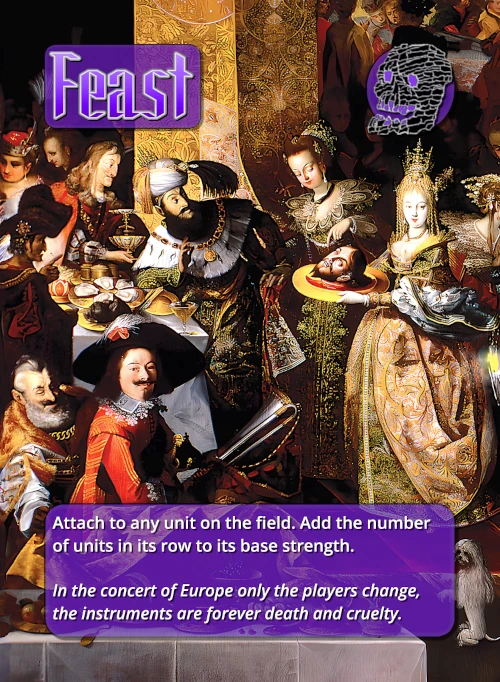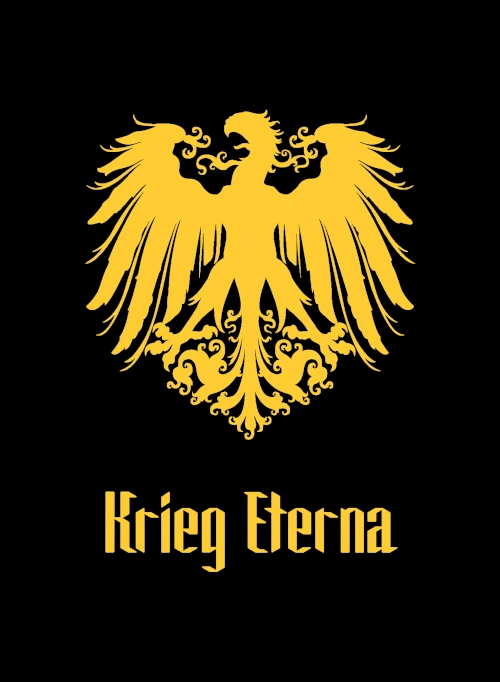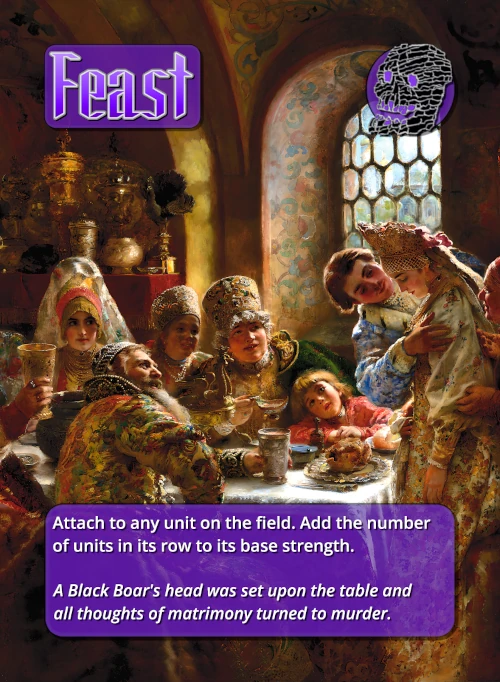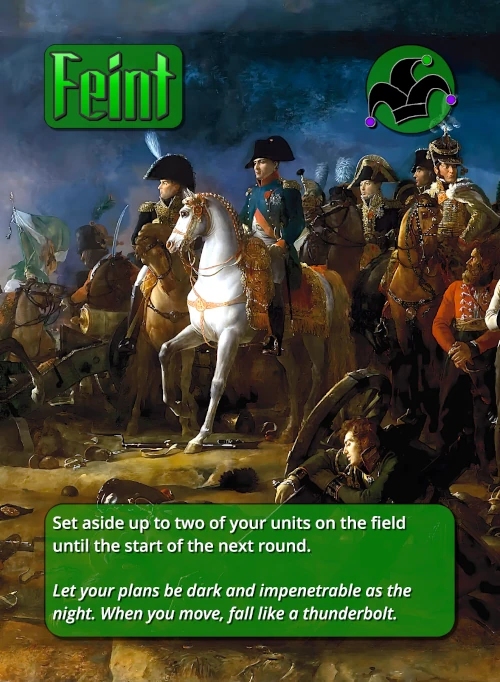Type: Hex Power
Effect Text: Attach to any unit on the field. Add the number of units in its row to its base strength.
Flavor Text: In the concert of Europe only the players change, the instruments are forever death and cruelty.
Artwork: Feast of Herod with the Beheading of St John the Baptist by Bartlomiej Strobel (1643)
Strategy:
The most straightforward way to use Feast is simply to buff your own units. However, more subtle use-cases are to create adjacency for your own units, or even to break adjacency for your opponent. Remember that Feast counts all units in the row, including the unit it is attached to. In addition, if more units are added to or removed from the row after was played, the strength contributed by should keep updating to reflect the current state of the playing field.
About the card:
This painting contains a double meaning about the nature of war and the heads of state that cause it. Painted near the end of the thirty years war, one of the most brutal and protracted conflicts in the history of Europe, the painting depicts the story of the Feast of Herod from the Bible. In the story, Herod is the King of Galilee and at his birthday banquet his daughter, Salome, performs a dance so beautiful that Herod promises her anything within his power to grant. Salome asks her mother what she should ask the king for and her mother, Herodias, replies that she wants the head of John the Baptist who had previously condemned her incestuous marriage. King Herod complies and serves John's head on a silver platter to Salome.

This scene has been depicted fairly literally in many paintings, plays and even movies, but in this painting the feast takes on a new meaning. The Czech artist Bartholomeus Strobel had either painted portraits of or found existing portraits of all of the heads of state (Kings, Queens, Princes, etc.) that had been involved in the Thirty Years War and included them as characters in the painting. This implies that they had destroyed Europe for the same reasons that Herodias had asked for John the Baptist's head, their own self aggrandizement and greed.






